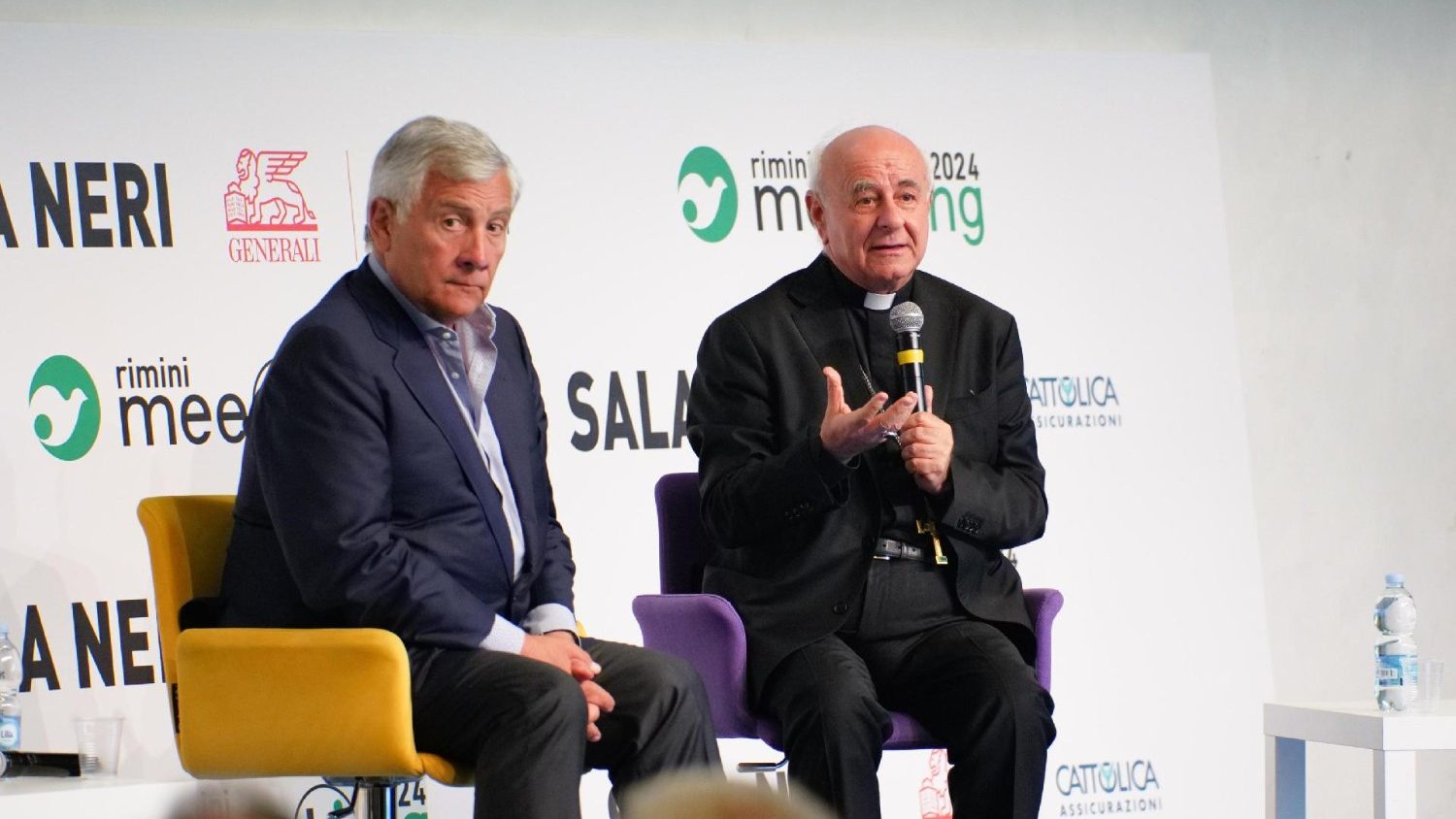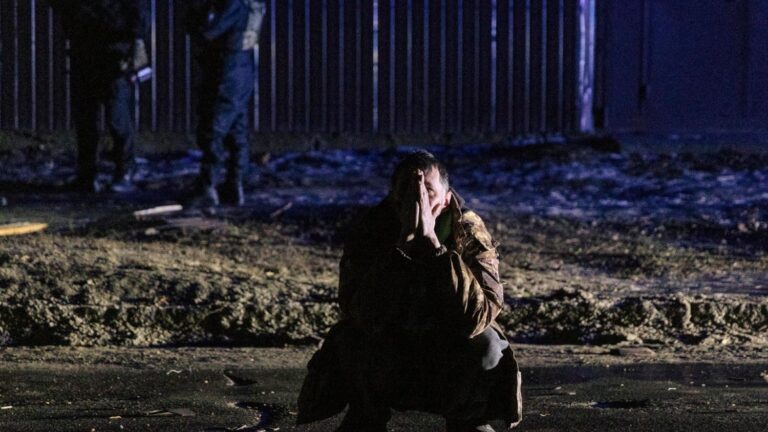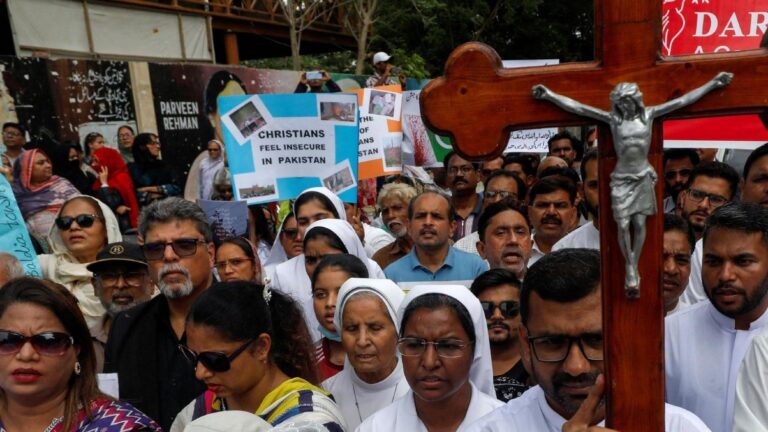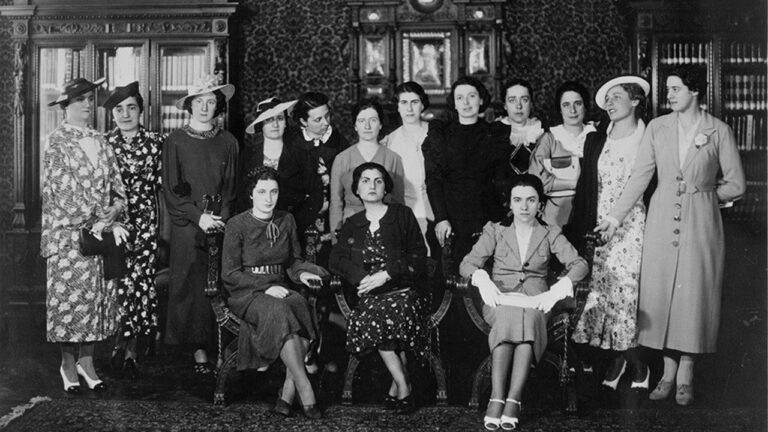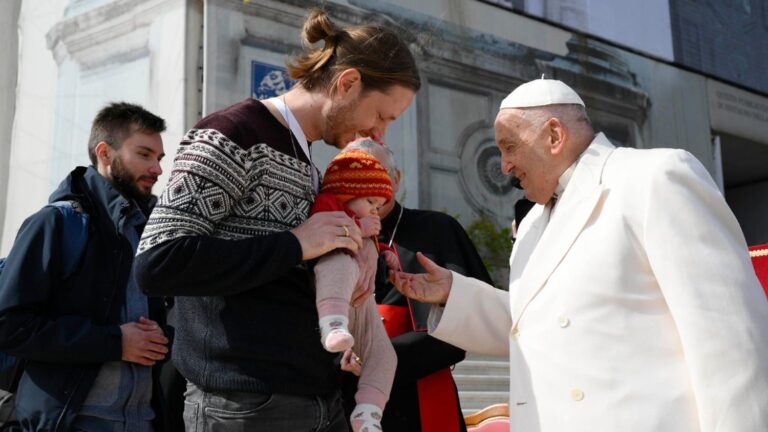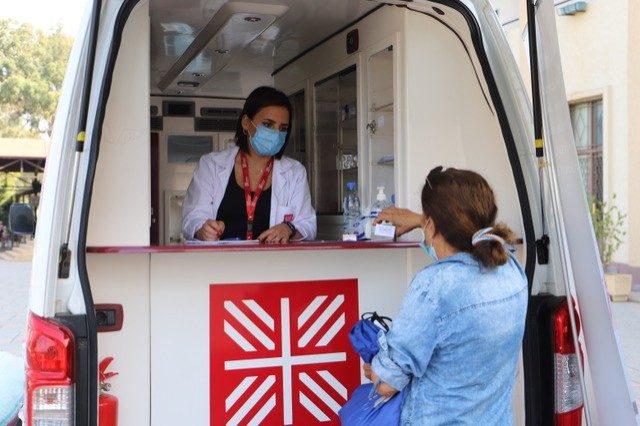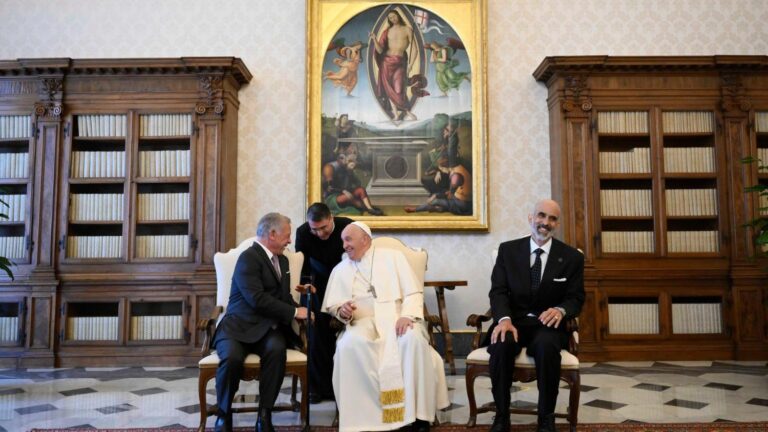Archbishop Paglia: ‘Building peace calls for spiritual conversion’
Speaking to Vatican media on the sidelines of a roundtable on peace at the Rimini meeting, the president of the Pontifical Academy for Life reflects on the role of Christians as peacemakers and underlines the need for spiritual conversion to build peace in a war-torn world.
By Massimiliano Menichetti and Andrea De Angelis – Rimini
The need for spiritual conversion and the rediscovery of the Gospel of fraternity to build peace in a world torn apart by war are the central themes of an interview granted by Vatican Radio-Vatican News to Archbishop Vincenzo Paglia, on the sidelines of the Rimini Meeting. The president of the Pontifical Academy for Life (PAL), spoke on Thursday during a round table entitled “Paths of Peace” with the Vice President of the Council of Ministers and Italian Foreign Minister Antonio Tajani.
For many people, the word peace sounds like an abstract word, and yet you have said several times that we must never give up on building it, referring to the Pope’s two encyclicals. Praise be to you And All brothers…
Archbishop Paglia: Yes, it is true, because what is lacking in the world today, not only in Italy and in Europe, is a vision. Countries, and even individuals, are absorbed in themselves, in a world that has become globalized and dominated by the economy, everyone focuses on pursuing and defending their own interests or personal agendas.
Pope Francis, on the other hand, offers us a vision: we live in one house, the planet (Laudato si’”), and we are one family of peoples, which is a universal brotherhood. Believing that we have a common Father for all these children of God is fundamental for peace.
We shudder at the thought of what Pope Francis calls a third world war “piecemeal,” but in reality we are already tearing the world apart, we are already crushing it, causing unimaginable tragedies: there are 59 wars going on, while we only talk about two a day, the one in Ukraine and the one in the Middle East. In my opinion, the crucial point is the need for spiritual conversion, to understand that we have a responsibility towards everyone. This is the angelic prophecy that Pope Francis holds in high esteem, but that many hide under a bushel.
Pope Francis speaks of the globalization of indifference, which also fuels conflicts and wars. You have reiterated the concept of the globalization of humanism, that is, of a reality that has man as its center of interest. How does this happen in concrete terms?
Archbishop Paglia: Many people make war, but we can all make peace, so no one can say that the war in Ukraine does not interest me or that I cannot do anything about it. One can be saddened by what is happening or indignant, but one can also pray, cooperate with the many who are committed to peace or even solidarity. There are many things we can do. Unfortunately, what prevails today is what a dear friend of mine, Giuseppe De Rita, called the new religion, that is, “egolatry,” the cult of self, on the altar of which everything, even the dearest human affections, is sacrificed. We must move from this destructive individualism to a fraternal “we.” This is the great revolution that Pope Francis speaks of and I hope that all the Churches, not just the Catholic Church, will unite on this issue.
There is a beautiful phrase from the Ecumenical Patriarch Athenagoras, remembered for his historic embrace with Pope VI, who said: “Sister Churches, brother peoples”, if the Churches are divided, what will the peoples look like? That is the big question.
There is also a paradox: so much individualism but also helplessness in the face of evil. Where can we draw inspiration from so as not to feel helpless?
Archbishop Paglia: From the Gospel, which clearly tells us that everything is possible. We must rediscover the Word of God as a historical and not an abstract source of energy. We Christians have the responsibility to change reality: this is what Jesus did, he gave his disciples the power to do the same and we must continue on this path. With great simplicity, let us begin to read the Gospel every day, truly welcoming it and this inner tension will become a historical reality of change.
In Rimini there are many different realities, including non-Catholics who come to create bridges of knowledge and encounter: is this the key?
Archbishop Paglia: Absolutely! Paul VI had this intuition when he wrote his first encyclical “Ecclesiam suam” in which he said that a Christian is universal by nature, in the Church, in his relationship with Christians, with other religions and even with those who do not believe. This is why Pope Francis emphasizes that defending our identity requires openness, our identity is being universal brothers: Saint Francis of Assisi, Saint Charles de Foucauld are some examples. I would like all Christians to experience this tension which is that of God.
What is essential for building peace?
Archbishop Paglia: To love and care for each other.
How important it is to build peace in one’s family, in one’s home: to be artisans of peace one must be one at home.…
Archbishop Paglia: Absolutely, because wars start at home and then they become dramatic. In this sense, peace means loving and being loved: let us take care of each other and we will also overcome wars.
